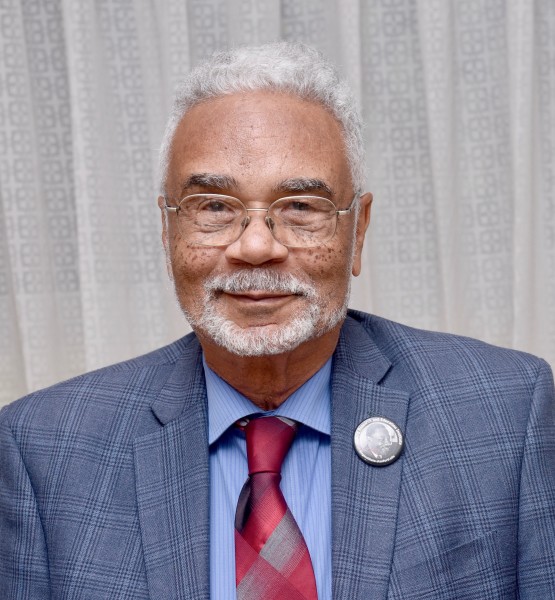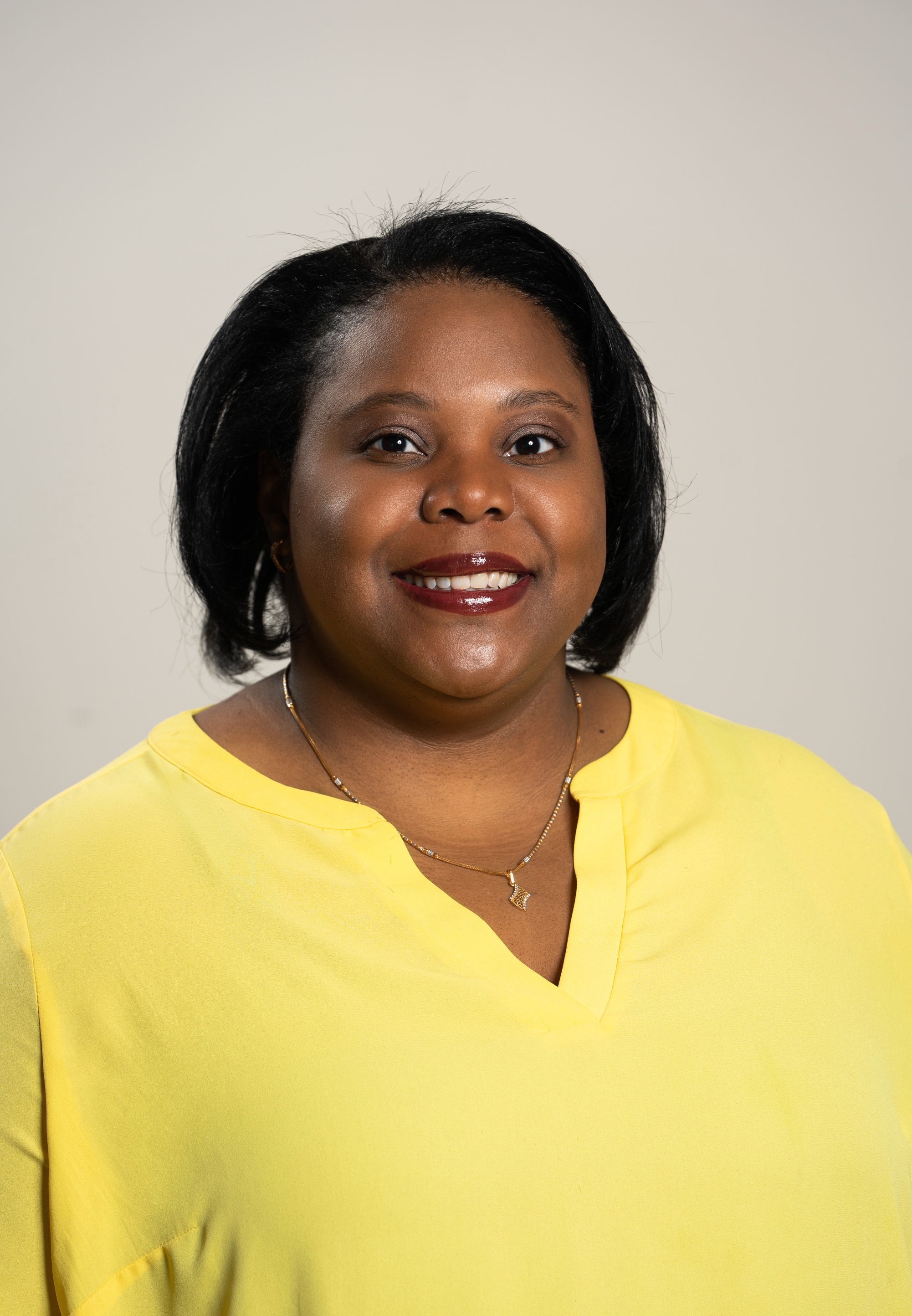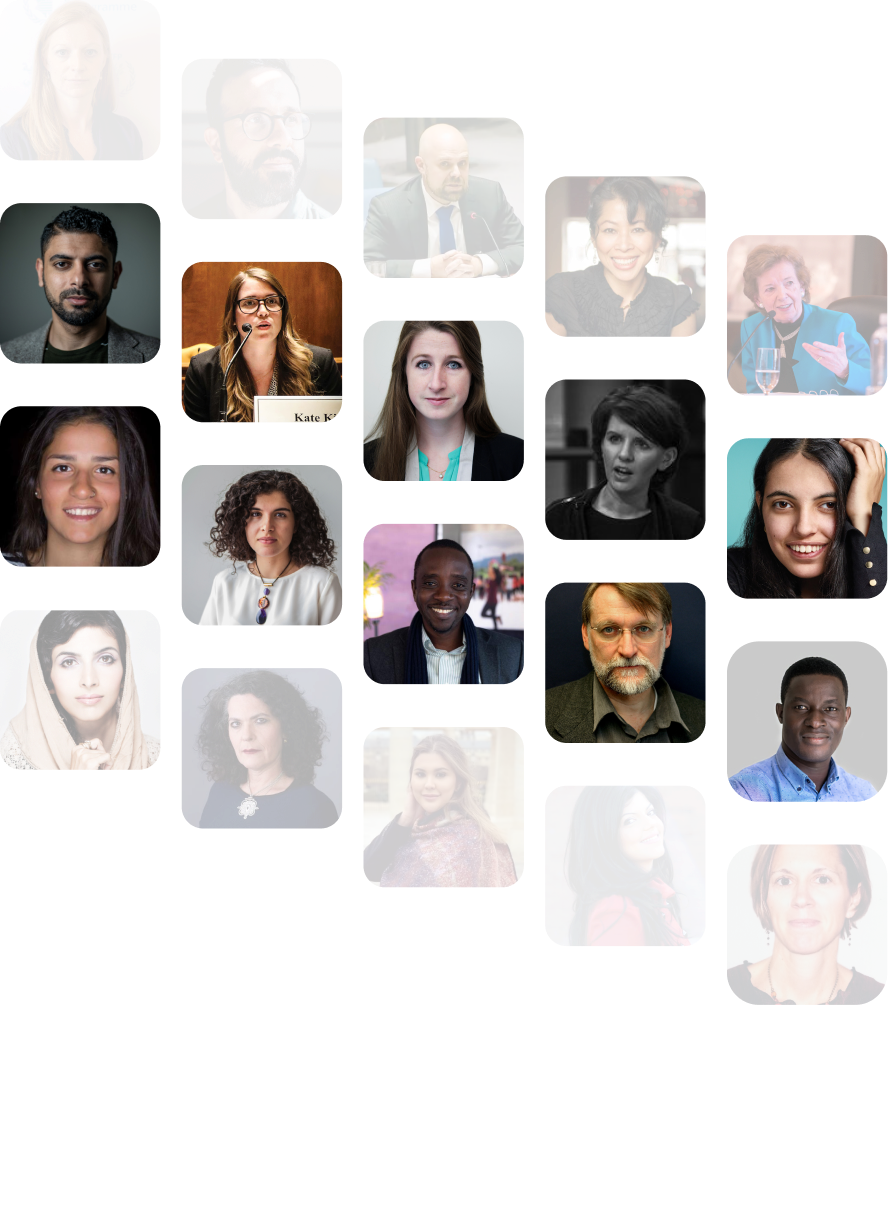Episode 9 (31 March 2021)
Unarmed: The Enduring Fight For Black Lives in America | Alicia Garza
After the shooting of African-American teen Trayvon Martin and the acquittal of his murderer, George Zimmerman, Alicia Garza created a Facebook post saying: "Black people. I love you. I love us. Our lives matter, Black Lives Matter." Growing up in a mixed-race household, Alicia’s understanding of race was influenced by her upbringing. In 2013, Alicia co-founded Nobel Peace prize nominee Black Lives Matter movement, in response to incidents of police brutality and racially motivated violence against Black people.
In this episode, we explore the legacies of racial inequality and how the struggle for racial justice has endured for centuries, in spite of the birth of the Civil Rights Movement. While slavery is known to have existed centuries before throughout the world, we unpack what makes slavery in America distinct and how the history of slavery still influences our present.
In our season 2 finale, we also dive into a key manifestation of systemic racism — the racial wealth gap — and how financial, educational, housing, employment, and other inequities between Black and white Americans cost the U.S. over $16 trillions of dollars in economic loss each year. On the podcast we ask ourselves the difficult question posed by Martin Luther King: “Where do we go from here?”
Featuring policy and advocacy insights from experts: Professor Clayborne Carson, Director, Martin Luther King, Jr. Research and Education Institute at Stanford University; and Christy Clark-Pujara, Associate Professor of History, Department of Afro-American Studies at the University of Wisconsin-Madison.
Host: Hazami Barmada, Founder and CEO, Humanity Lab Foundation.
FOR ADDITIONAL LEARNING ON THIS TOPIC, view our free educational toolkit and "policy deep-dive" document. We invite you to use this episode/toolkit for continued learning, advocacy and activism.
Speaker Biographies:
ALICIA GARZA is Principal, Black Futures Lab // Author, The Purpose of Power // Co-creator, #BlackLivesMatter
Alicia believes that Black communities deserve what all communities deserve -- to be powerful in every aspect of their lives. An author, political strategist, organizer, and cheeseburger enthusiast, Alicia founded the Black Futures Lab to make Black communities powerful in politics. In 2018, the Black Futures Lab conducted the Black Census Project -- the largest survey of Black communities in over 150 years.
Alicia is the co-creator of #BlackLivesMatter and the Black Lives Matter Global Network, an international organizing project to end state violence and oppression against Black people. The Black Lives Matter Global Network now has 40 chapters in four countries. She also serves as the Strategy & Partnerships Director for the National Domestic Workers Alliance, the nation’s premier voice for millions of domestic workers in the United States. Additionally, Alicia is the co-founder of Supermajority, a new home for women’s activism.
Alicia has become a powerful voice in the media and frequently contributes thoughtful opinion pieces and expert commentary on politics, race, gender, sexual orientation and gender identity. Her work is featured in Time, MSNBC, The Washington Post, The New York Times, The Guardian, Elle and Essence.
In addition, Alicia has received numerous accolades and recognitions, including being on the cover of TIME’s 100 Most Influencial People in the World issue (September 2020), named to TIME’s 100 Women of the Year list (March 2020), Boomberg 50 (2020), BBC’s 100 Women 2020, Fortune's 40 Under 40, Fast Company’s Queer 50 list, Politico 50 and 3x recipient of The Root’s list of 100 African American achievers and influencers. Alicia has received the Sydney Peace Prize, Adweek Beacon Award, Glamour’s Women of the Year Award, Marie Claire’s New Guard Award, and was honored as the Community Change Agent at BET’s Black Girls Rock Awards.
Alicia’s first book, The Purpose of Power: How We Come Together When We Fall Apart, released October 20, 2020 with One World (Penguin Random House.) She shares her thoughts on politics and pop culture on her podcast, Lady Don't Take No.
Alicia warns you -- hashtags don’t start movements. People do.
CLAYBORNE CARSON is Director, Martin Luther King, Jr. Research and Education Institute, Stanford University // Centennial Professor of History, Emeritus
Dr. Clayborne Carson is the founder of the Martin Luther King Jr. Research and Education Institute at Stanford University, where he is also the Martin Luther King Jr. Centennial Professor of History. He has devoted most of his professional life to the study of Martin Luther King Jr. and the movements the iconic orator inspired. Dr. Carson’s scholarly publications have focused on African-American protest movements and political thought of the period after World War II. In 1985, Coretta Scott King invited Dr. Carson to edit and publish the papers of her late husband. Under Carson’s direction, the King Papers Project has produced seven volumes of The Papers of Martin Luther King Jr. He has served as a consultant on several documentary films and has appeared on many national TV and radio programs.
Twitter: @claybornecarson, @mlk_institute
CHRISTY CLARK-PUJARA is Associate Professor of History, Department of Afro-American Studies at the University of Wisconsin-Madison
Christy Clark-Pujara is an Associate Professor of History in the Department Afro-American Studies and Department of History at the University of Wisconsin-Madison; she is also the Director of Graduate Studies for the Department of Afro-American Studies. She received her B.A. in History and Social Science from the University of St. Thomas in St. Paul, Minnesota and her M.A. and PhD in History from the University of Iowa—Iowa City. Her research focuses on the experiences of black people in British and French North America in the 17th, 18th and early 19th centuries. She is particularly interested in retrieving the hidden and unexplored histories of African Americans in areas that historians have not sufficiently examined—small towns and cities in the North and Midwest. She contends that the full dimensions of the African American and American experience cannot be appreciated without reference to how black people managed their lives in places where they were few. An absence of a large black populace did not mean that ideas of blackness were not central to the social, political, and economic development of these places. Her first book Dark Work: The Business of Slavery in Rhode Island (NYU Press, 2016), examines how the business of slavery—economic activity that was directly related to the maintenance of slaveholding in the Americas, specifically the buying and selling of people, food, and goods—shaped the experience of slavery, the process of emancipation, and the realities of black freedom in Rhode Island from the colonial period through the American Civil War. Her current book project, Black on the Midwestern Frontier: From Slavery to Suffrage in the Wisconsin Territory, 1725—1868, examines how the practice of race-based slavery, black settlement, and debates over abolition and black rights shaped white-black race relations in the Midwest. Clark-Pujara is the author of several journal articles, most recently “In Need of Care: African American Families Transform the Providence Association for the Benefit of Colored Orphans during the Final Collapse of Slavery, 1839-1846,” Journal of Family History (September 2019). Clark-Pujara was recently awarded the UW-Madison Vilas Faculty Early Career Investigator Award and the UW-Madison Outstanding Woman of Color Award 2020, Outstanding Woman of Color in Education Award, and the Feminist Scholar’s Fellowship from the UW-Madison Center for Research on Gender and Women in 2019 and the Honored Instructor Award from University Housing in 2020.
HAZAMI BARMADA is the Founder & CEO of Humanity Lab Foundation and co-Executive Producer & Host
Finding Humanity Podcast. Hazami is a social entrepreneur, thought leader, and public affairs and social impact expert recognized by Forbes as an “inspirational agent of change.” She has consulted for many leading global brands including the United Nations, United Nations Foundation, Aspen Institute, and the Royal Court of the Sultanate of Oman. Among her posts at the United Nations, she served as the Coordinator for the United Nations Secretary General's World Humanitarian Summit, an Advisor to the first-ever United Nations Secretary-General's Youth Envoy, as a member of the United Nations SDG Strategy Hub for the launch of the 2030 Sustainable Development Agenda. Hazami has a Masters from Harvard University where she was an Edward S. Mason Fellow in Public Policy and Management. She studied social and public policy at Georgetown University and has a BA in Anthropology and Sociology. Twitter: @hazamibarmada
This episode is made possible with support of Vodafone Americas Foundation. To learn more about their programs and how you can support their network of partners, visit vodafone-us.com
Finding Humanity is a production of Humanity Lab Foundation and Hueman Group Media.
Subscribe, rate and leave us a review. Follow us on Twitter + Instagram @find_humanity and Facebook.
-
 ALICIA GARZA
Principal, Black Futures Lab // Author, The Purpose of Power // Co-creator, #BlackLivesMatter
ALICIA GARZA
Principal, Black Futures Lab // Author, The Purpose of Power // Co-creator, #BlackLivesMatter
-
 CLAYBORNE CARSON
Director, Martin Luther King, Jr. Research and Education Institute, Stanford University // Centennial Professor of History, Emeritus
CLAYBORNE CARSON
Director, Martin Luther King, Jr. Research and Education Institute, Stanford University // Centennial Professor of History, Emeritus
-
 CHRISTY CLARK-PUJARA
Associate Professor of History, Department of Afro-American Studies at the University of Wisconsin-Madison
CHRISTY CLARK-PUJARA
Associate Professor of History, Department of Afro-American Studies at the University of Wisconsin-Madison
-
 Hazami Barmada
Founder & CEO, Humanity Lab Foundation; co-Executive Producer & Host
Hazami Barmada
Founder & CEO, Humanity Lab Foundation; co-Executive Producer & Host
Also available on:
Share this episode:
